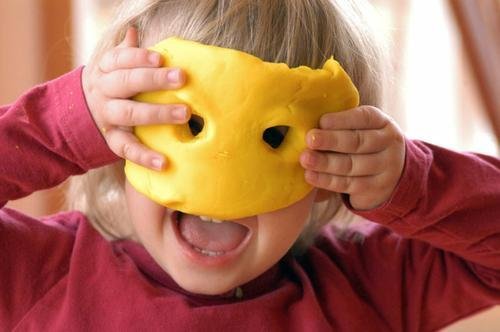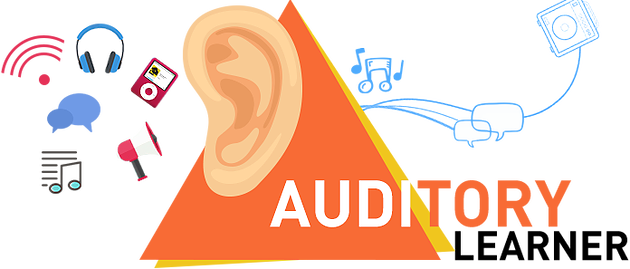Your Memory And Your Learning Style

Hello Steemians, today, you and I will quickly talk about the topic of importance as it pertains to your memory titled "Your Memory And Your Learning Style". Is there a correlation between your memory and your learning style? How does my learning style relate to my memory?. We shall see all of that today. Therefore without further ado, let's get to it right away.
Your Memory And Your Learning Style
There are many different ways on how to identify and describe our learning style. The way in which we learn best can easily be slotted into one of these three categories;
- Visual (Seeing)
- Auditory (Hearing)
- Kinesthetic (Doing)
Let's go over them one after the other.
Visual (Seeing)

Visual learners are people who learn properly and better by seeing a representation or description of what they are studying which could either be in pictures or written words or maybe an actual demonstration. Good visual learners tend to ;
- be strong readers (usually fast, but not always)
- be good spellers (usually because they can "see" the word)
- prefer after a certain age, to read for themselves rather than have stories read for them.
- find it easier to remember things they see rather than just hear (such as having instructions written)
A visual learner prefers down written rather than spoken or using a map rather than listening to directions) remember visual materials presented on Video CD.
Auditory (Hearing)

An auditory learner is someone who learns best by hearing things. Such learners prefer hearing materials in a lecture classroom setting. Good auditory learners tend to;
- prefer talking to writing when describing something
- prefer making a telephone call to sending text messages
- become distracted by noise more than visual learners. They have a stronger sense of music than for visual arts such as painting.
- they remember what they hear easily than what they see.
Kinesthetic (Doing)

A kinesthetic learner is someone who learns more quickly and accurately by actually engaging themselves in doing it. Moving, touching and experiencing something firsthand are often essential to this type of learner. Good kinesthetic learners tend to;
- Speak and write more slowly than the other modalities of learners
- Use hand gestures more often
- Prefer hand on learning to just seeing or hearing about something
- memorize things better and more easily when being physically active (such as walking around the room when reciting)
- understand things better when they are acted out
Over the years research has been carried out that each of every one of us prefers to copy from one of this three styles (visual, auditory and kinesthetic) but the school system today is set up to favor the visual, tolerate the auditory and actively discourage the kinesthetic.
Think about it, all tests and assignments including examinations are mostly in the written form. As a result, the visual learner is the one who is consistently getting the best grades because the school system values the visual learning trait than the other two (auditory and kinesthetic)
Millions of students, on the other hand, prefer to learn in the auditory and kinesthetic style which are not in line with the visual which is been used in the school setting. This mismatch occurs between how these students learn, store and retrieve information and how they are required to put what they have learned in written tests which may take the form of multiple choice, easy or any other standardized learning and memory processes required to answer the questions.
Students who have stored the material they have learned in styles which are not aligned with the type of test they are taking, often find they either cannot translate what they know into a written form or retrieve the information quickly enough to form the answers.
When they attempt to use an auditing or kinesthetic style to retrieve and write down information for these test they are often frustrated and hindered in their efforts due to the mismatch involved. This mismatch will not allow them to easily show what know and heavily contribute to their lower grades. When they fail, they are discouraged which tends to make them, put in little or no efforts to learn again as they now tell themselves "of what use", when at the end we will not remember what we have learned.
Another problem students face under this same scenario is when students preferred learning style is not same with how his teacher presents the information and how he tests. The quickest way to understand a person's learning style is to listen to his preferred predicates which he uses when talking.
If a student must succeed in school he/she must understand his or her own learning style, know the teacher's style and the testing style. Once these are understood, he duplicates the learning style when studying and remembers what he has learned which becomes very easy.
That's all I can take on the topic "Your Memory and Your Learning Style"
References
http://www.llcc.edu/student-services/cas/helpful-handouts/characteristics-of-learning-styles-2/
From My 6 years classroom teaching experience
Several books I have consumed which I really cannot rememer.